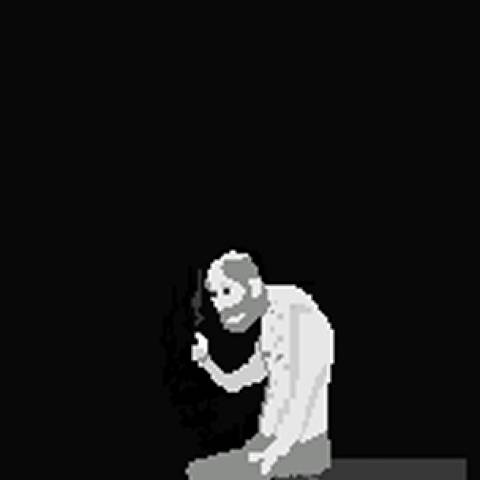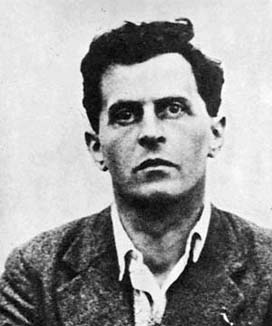Philosophy in Video Games 2: What is a Game?
By Kaibar 3 Comments
Hi there. So over a year ago, I had this idea about writing a regular blog about the connection between philosophy and video games. However, nobody seemed interested, so I stopped after my first attempt. Well, I'm back to give it another shot, so please let me know if you'd like to hear more on this topic. The format I'm trying to establish will deal with a philosophical question pertaining to video games and discuss this question by means of introducing the reader to one philosopher and his theories.
In my last blog post, I spoke about how morals and morality are portrayed in video games. Ethical deliberations of this kind are generally called 'practical' philosophy. Today I'd like to talk about a more theoretical side of philosophy, namely language theory, by discussing a question that has popped up recently: What is a game?

Mainly, this question is being asked in conjunction with indie games that are breaking away from known formulas, and, perhaps more importantly, are being developed with new intentions in mind. While I'd say that generally it's been the main goal of a team to make a product that both sells and entertains, newer titles like Cart Life and Papers, Please have seemingly abandoned these goals. They are not made to entertain or to relay a fun experience, but to raise moral questions. In traditional blockbuster games, the player is given an opportunity to live the life of a hero, a better, more exciting life, dealing with extraordinary situations. Now he is being invited to see the world through the eyes of people who struggle with everyday life, learning of their problems and getting to understand their reality. Then there are games like Proteus or Dear Esther, which present an abstract concept in the form of a game, to be interpreted by the player. When looking at these examples of highly unconventional pieces of interactive media, the question of whether or not one is 'playing a game' is sure to arise.
What we call a game has also famously been discussed in philosophy, namely by early- to mid- 20th century philosopher Ludwig Wittgenstein. Often described as the most influential thinker of the past century, his works and ideas are generally divided into two categories: the early Wittgenstein, who described his theories in the Tractatus Logico-Philosophicus, and the later period, during which he wrote the seminal Philosophical Investigations. For our question about games, the later works are the more relevant. Wittgenstein's general goal, in both of his main works, was to establish a language theory which would enable us to deal with all of philosophy's question. This idea lead to what is commonly referred to as the 'linguistic turn' in philosophy, a turn away frommetaphysics and towards the pragmatic discussion of how the use of language governs our lives.

Anyway, the most notable analogy Wittgenstein uses in the Investigations to explain his language theory is the so-called language-game. Like a game, language is governed by both implicit and explicit rules, and like in games, the rules are not exhaustive; there are situations not governed by them. For example, there's no rule in chess about which hand the players have to use to move their pieces. So this means that there is a certain openness to language. Now on a meta-level, the question of what we can call a game, is analogous to the question of what language is. Closely related to this is the question of how words get their meaning. While traditional theories of language assume that an object gets to be called something by sharing a common property with other objects (a chair has to fulfill the property of presenting a seating opportunity), Wittgenstein flat out rejects this view when it comes to games and language.
Instead, he uses the concept of family resemblance to explain how we use terms like game and language. This concept assumes that there is no single feature that all practices we call games share. For example, not all games are played together (Patience is played alone) or have goals (children's games like Ring a Ring o' Roses). So, without a unifying property, Wittgenstein uses the idea of “a complicated network of similarities, overlapping and criss-crossing” to explain how we use the terms game and language. Simply put, two activities we call a game can have a common property, but don't have to. To count as a game, an activity just has to resemble at least one other activity we call a game. With this idea, Wittgenstein puts a heavy emphasis on the development of language as a social practice, while abandoning the traditional view of being able to give definitions by using sufficient and necessary conditions. In the end, we are left with the conclusion that there are no exact boundaries telling us what a game is and what isn't.

We can now use this concept of family resemblance to give a possible answer to the original question: What is a video game? In my opinion, there is a family resemblance to be recognized between games like Cart Life, Proteus and, say, a Gears of War. Sure, the similarities might be small, inconsequential or even non-existent. But since there are a myriad of games that differ ever so slightly, it is doubtful that there could be one not sharing any resemblance with another. According to our presumed concept, we simply would not call such a thing a game.
In conclusion, what are the lessons to be drawn from this theoretical exercise? Well, first of all, the question of whether or not a thing is a game seems somewhat flawed to me now. Without exact boundaries governing our use of words, maybe it doesn't matter if something we experience is closer to a movie than to a game, uses ideas usually found in other art forms or challenges our very conception of what a game should be. In fact, this is one of video games greatest strengths: By not having to adhere to certain limitations of a definition, games can change, evolve and bring us new experiences.
In the end, the question that should matter is not whether or not you are playing a game, but whether or not you are getting something out of that experience. This turn towards the pragmatic is also essentially what Wittgenstein envisaged when writing the Investigations: After having shown how senseless some of our own theoretical questions are, we can turn to the more important practical side of things.
Thank you for reading. Please leave a comment telling me what you think of this topic.
